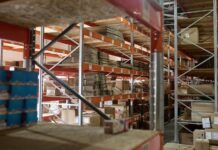The American Apparel & Footwear Association (AAFA) has criticized the White House’s recent ‘Liberation Day’ tariff increase, expressing concerns that it will drive up costs for U.S. companies and consumers. CEO Steve Lamar labeled the decision as regressive and inflationary, pointing out that tariffs on apparel were already excessively high. The tariff impact on apparel is becoming a significant concern for many stakeholders in the industry.
Lamar cautioned that this new policy will disrupt supply chains, negatively affect U.S. manufacturers that rely on foreign materials, and could lead to retaliatory tariffs that threaten American exports. The White House’s announcement of the so-called ‘Liberation Day’ has generated concern within the American apparel and footwear sector, as extensive new reciprocal tariffs were introduced, affecting all major suppliers of apparel, footwear, and travel goods. The AAFA has issued a firm response, warning that this tariff strategy will escalate costs for both businesses and consumers, amplifying the tariff impact on apparel.
Steve Lamar, president and CEO of AAFA, condemned the move as detrimental to the economy, stating, “tariffs are taxes borne by American companies that import goods and the hardworking American families that buy them.” He emphasized that even prior to the new measures, clothing and footwear faced average tariffs more than five times higher than other U.S. imports. Lamar noted that the latest announcement adds further financial strain on American families and businesses, exacerbating inflation and increasing market uncertainty. The ongoing tariff impact on apparel is expected to ripple through the economy.
“True liberation would have meant eliminating this high tariff burden,” Lamar remarked, describing the Administration’s actions as regressive and harmful to long-term investments.
“While we welcome President Trump’s focus on reducing foreign trade barriers, we need to reduce America’s high trade barriers as well and do so in a predictable manner that enables long-term investment and supply chain decisions. For companies that had been in a ‘wait and see’ mode, the chaos of the last few months, coupled with the confusion from today’s announcement has only created more uncertainty,” he continued.
“While the President touts ‘America First’ policies, this tariff plan overlooks its destructive impact on the U.S. manufacturers in our industry. These American companies depend on foreign inputs which have no, or very few, American substitutes. Tariffs will significantly increase the cost of manufacturing in the U.S., and, when paired with the retaliatory tariffs that will surely come, will undermine U.S. export opportunities as well,” Lamar concluded. The tariff impact on apparel is a critical factor that will influence the industry’s future and the broader economy.
































